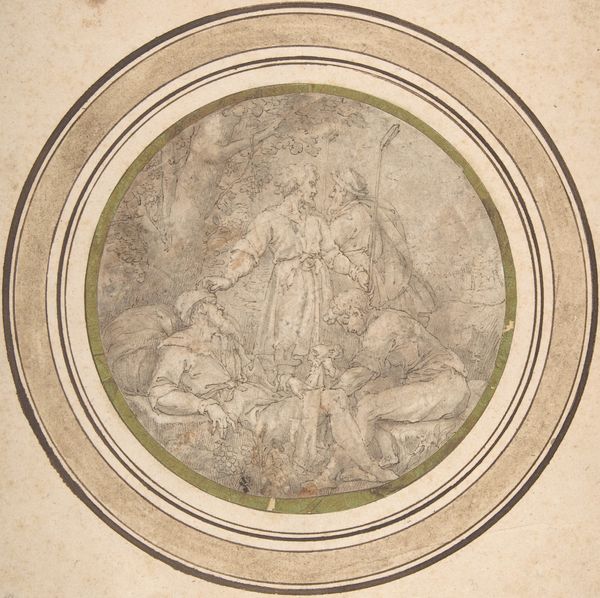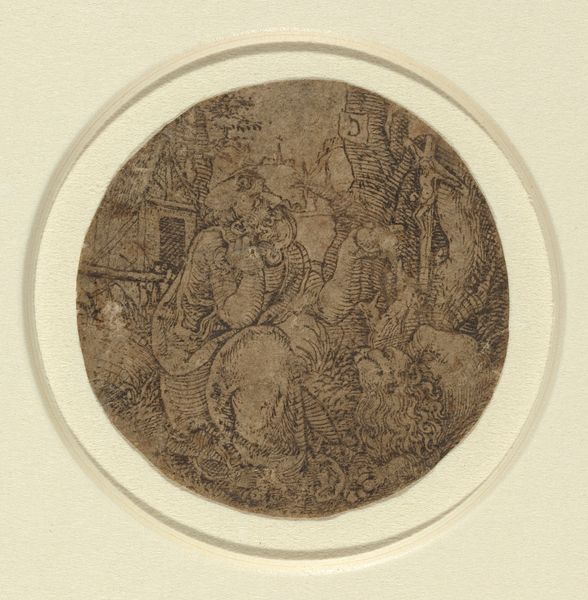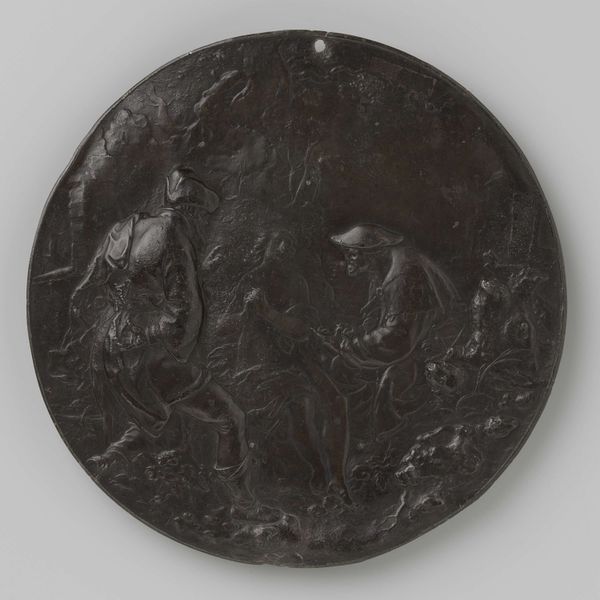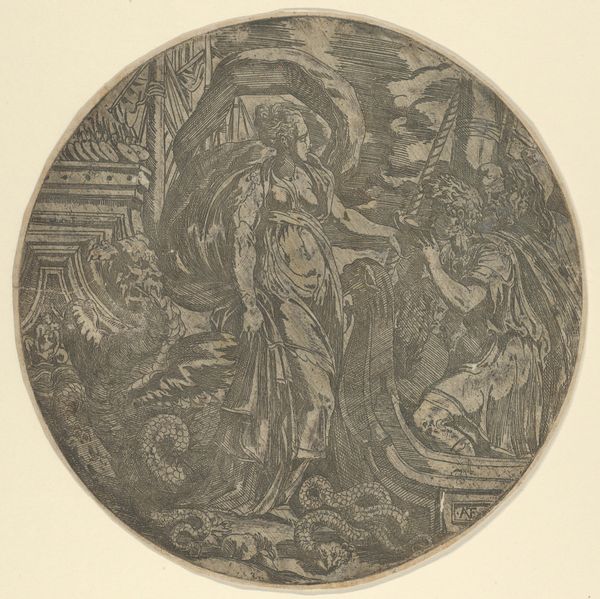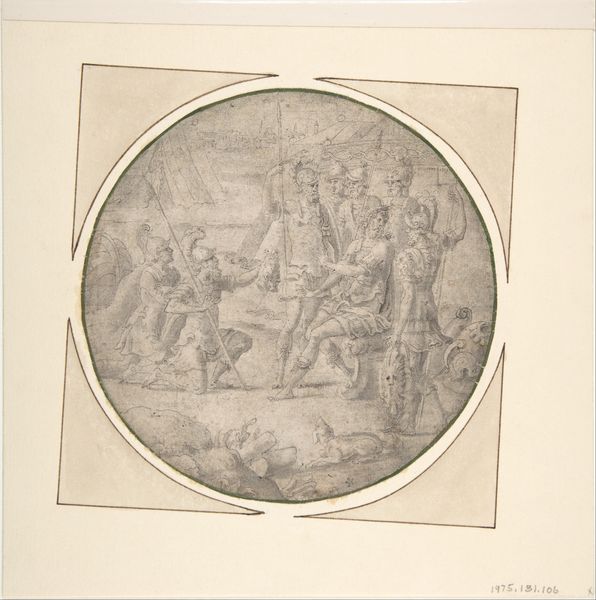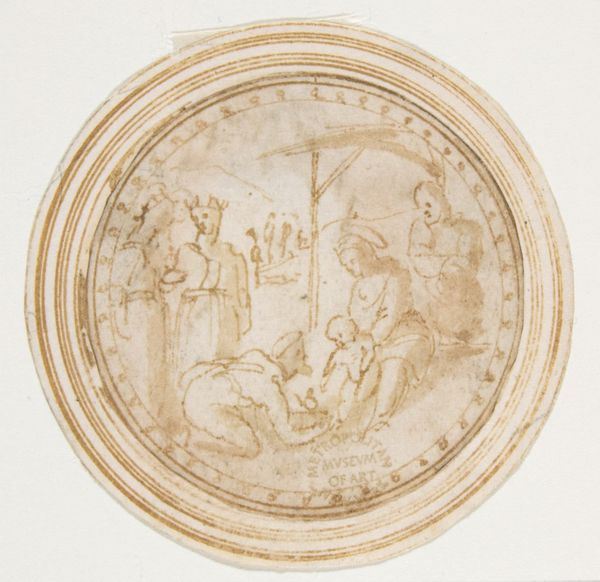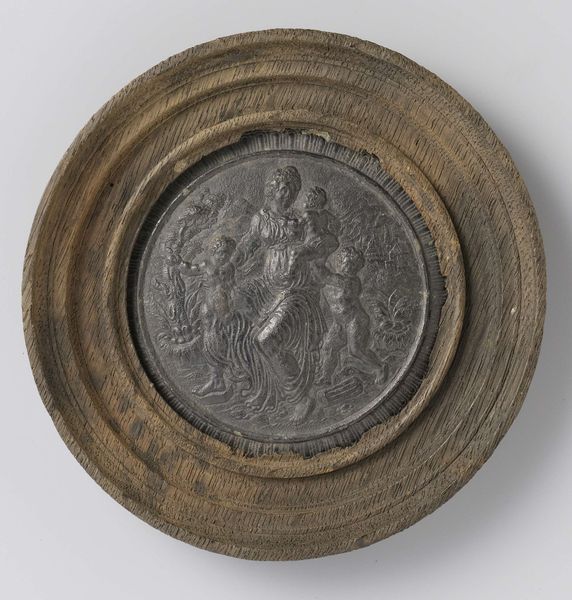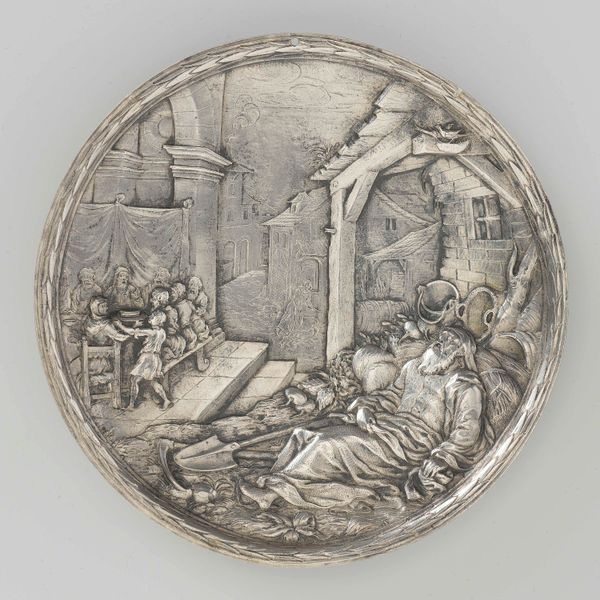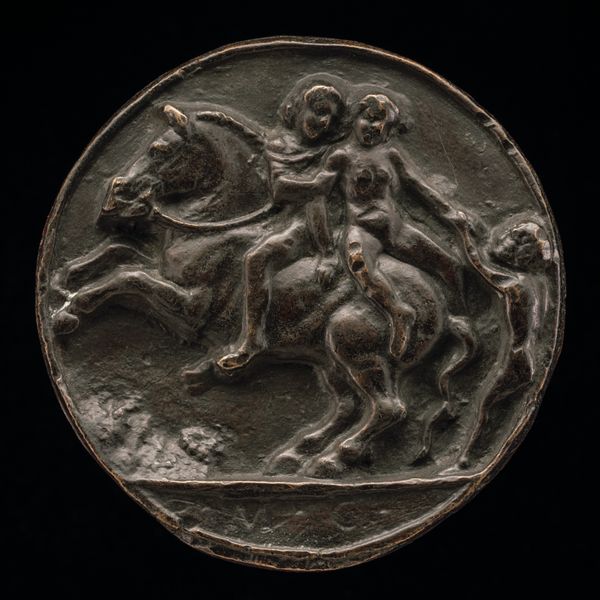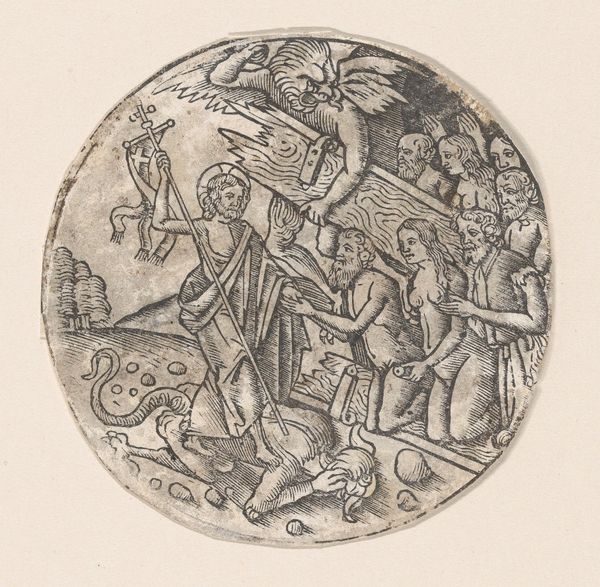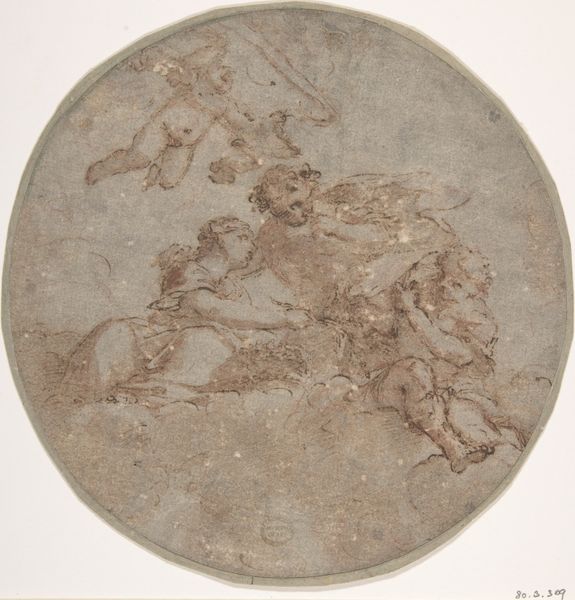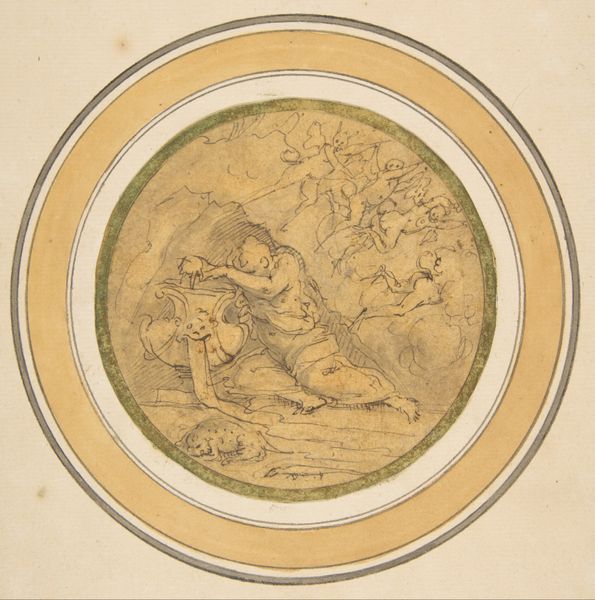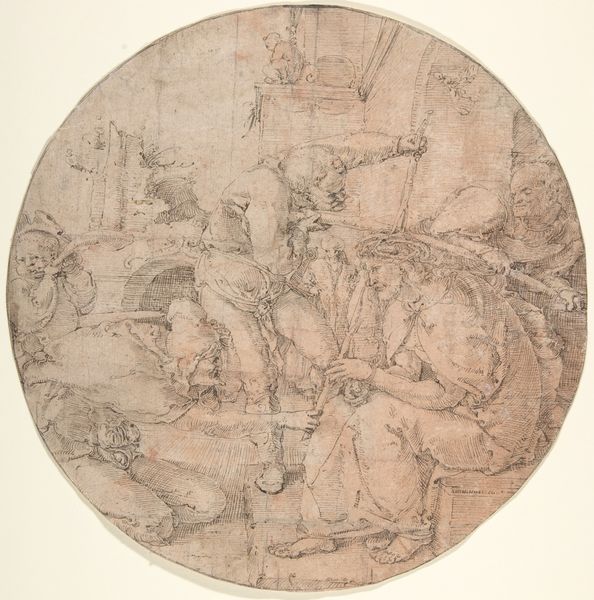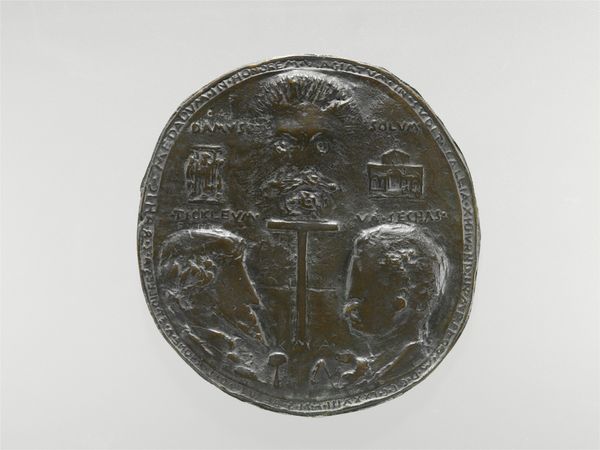
The Angel of the Annunciation (Cartoon for an Embroidery) 1466 - 1524
0:00
0:00
drawing, print, charcoal
#
portrait
#
drawing
#
toned paper
# print
#
charcoal drawing
#
figuration
#
11_renaissance
#
coloured pencil
#
underpainting
#
charcoal
#
early-renaissance
Dimensions: Diameter: 3 13/16 in. (9.7 cm)
Copyright: Public Domain
Editor: So, this is Raffaellino del Garbo's "The Angel of the Annunciation," a cartoon for an embroidery from around 1466 to 1524. It’s charcoal, coloured pencil and white heightening on toned paper, located in the Met. It's interesting that it’s a study for an embroidery – it feels very precious and finely worked. What can you tell me about it? Curator: It’s fascinating to consider this drawing as a design for embroidery, placing it within the sphere of craft rather than "high art," as was the conventional hierarchy. Think about the labour involved: the hours of painstaking needlework required to translate this delicate sketch into a tangible textile. The value of the material is also to be considered - where was the charcoal from and who were the people trading with pigments for coloured pencils? Editor: That’s a perspective I hadn't considered. The process of making it, from sketch to final embroidered piece… Was embroidery considered women's work at this time, mostly? Curator: Largely, yes. Therefore, viewing the embroidery as the end product and not simply a lesser version of the original artwork emphasizes the cultural contribution of women's work in that era. The drawing functions almost as an instruction manual for that labour, dictated to and from a social construct that relies on cheap workforce for it's mass reproduction of art. Editor: That completely reframes my understanding of the work! It's not just a sketch for an angel, it’s about all the other artwork associated with it through labour and reproduction of itself through different forms. Curator: Exactly. By focusing on materiality, the means of production and circulation, we uncover the social relationships embedded within the artwork that's both historical and culturally appropriate. Editor: I learned something new today. Looking at the drawing itself made me realize there are stories not always seen and understood at face value.
Comments
No comments
Be the first to comment and join the conversation on the ultimate creative platform.
